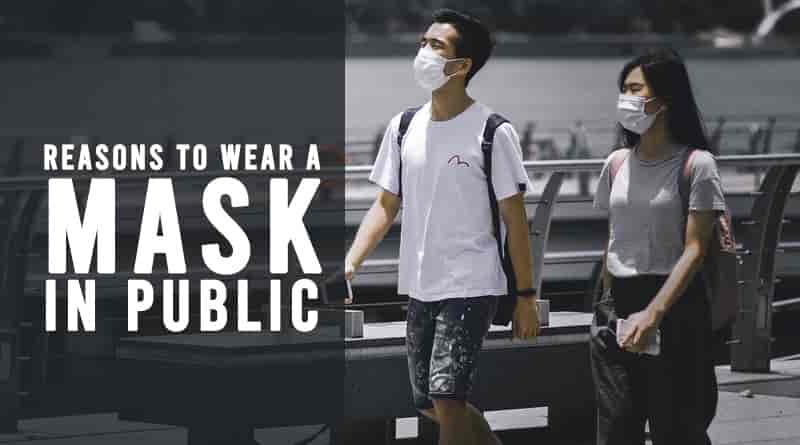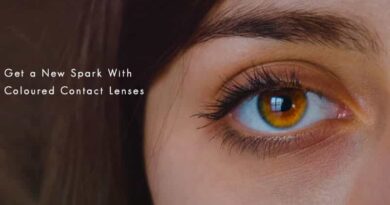6 Good Reasons to Wear a Mask in Public
In light of the COVID-19 pandemic caused by the SARS-CoV-2 virus, face coverings have been in high demand. There’s a growing body of evidence that wearing face coverings in public situations helps curb the virus’s spread. However, mask-wearing is still a hotly contested issue among some people, and many are trying to sort out the fact versus the fiction about the practice of mask-wearing.
Public health experts advocate the use of dependable cloth face coverings by the general public in everyday situations. These include scenarios like taking public transportation, buying essentials, and going out for a brisk walk. Here are just some of the reasons why wearing face masks in public is a good idea.
Table of Contents
Health Experts recommend it.
The pandemic remains unpredictable, but infectious disease experts, medical professionals, and regulatory bodies are now more united in their views about mask-wearing. Several health authorities advocate mask-wearing in public because there’s a growing amount of scientific evidence that it helps curb the spread of COVID-19. The Centers for Disease Control and Prevention (CDC) says that cloth masks can be worn in ordinary public settings in place of respirators, which are in short supply and have to be reserved for medical workers. Wearing a face covering should be the case, especially when social distancing is challenging to maintain.
A recent study published in Health Affairs surveyed mask-wearing mandates in 15 US states and the district of Columbia to determine just how helpful mask-wearing is in stopping the spread of SARS-CoV-2. The researchers discovered that these mask mandates resulted in a slowdown of daily reported COVID-19 cases. The University of Washington’s Institute for Health Metrics and Evaluation predicted that wearing masks in public can save more than 30,000 lives over the next few months.
This may be a good time to debunk the myth that wearing a mask will cause you to breathe in excessive amounts of carbon dioxide. A well-constructed mask will also be well-ventilated, and it won’t keep people from breathing correctly. Remember: when you’re contemplating the benefits of mask-wearing and other preventive measures, listen to scientific experts’ advice—not of individuals who spread gossip or rumors.
It Prevents the Spread of Diseases to Others
In the absence of a vaccine for COVID-19, the best possible recourse is to avoid exposure to the virus and prevent others from being exposed to it. People who may have COVID-19 will have less chance of spreading it to others if they wear a mask. The mask keeps respiratory droplets from being ejected into the air when a potentially infected person coughs, sneezes, spits, raises their voice or even talks merely or breathes.
It must be remembered that a cloth mask is not a substitute for an N95 mask or other types of a respirator. Cloth face coverings cannot be depended on like medical PPEs to shield the wearer from the virus completely. However, a cloth mask can help even someone who is not aware that they have the virus from passing it on to others. That additional foresight makes a big difference in curbing the spread of the disease.
When Everyone Wears Masks, There’s Better Collective Protection
Mask-wearing in public is something that benefits both the individual and the community. When more people move to block transmission of the virus by wearing masks, each person in the crowd is better protected.
One of the best approaches to combating the virus is to cut off its transmission chain. The more aware the general public is of this, the better the community’s chances are against the disease.
Read: How to Avoid Coming Down With a Winter Illness
It Maximizes the Effect of Social Distancing and Proper Hand Hygiene
By now, you may have heard of the holy trinity of preventive action against COVID-19: mask-wearing, social distancing, and hand hygiene. All three are upheld by health authorities to be the most effective measures against the disease. They cannot be practiced in isolation, but they must be done together.
Social distancing will be for nothing if it is still straightforward to transmit infected respiratory droplets from an uncovered face. That’s why mask-wearing should be practiced alongside social distancing. Mask-wearing also bolsters the effectiveness of washing one’s hands and ridding them of harmful germs. It ensures that all the bases are covered: virus contained from the nose and mouth and gone from one’s hands.
Read: Social distancing and coronavirus
It’s Inexpensive and Convenient
Handwashing, social distancing, and mask-wearing are currently the most effective interventions against COVID-19. They are also the most accessible. High-quality and breathable face masks are relatively inexpensive. There’s also more proof that cloth masks can better help fight disease spread than, say, more expensive but unproven drugs or treatments.
By wearing a mask, you could also be saving someone else from spending thousands of dollars on their hospital and medication bills. So, keep in mind that masks are also an affordable way to uphold your community’s health and wellbeing.
It’s Courteous and Considerate to Wear a Mask
Hopefully, people can get over the fear that wearing a mask makes them look like they are weak, sick, or conspicuous to others. For people in other countries with long-practiced mask-wearing in public, wearing one is a sign of courtesy in which you protect those who are vulnerable.
Wearing a mask communicates your awareness of the situation to other people. It also shows that you are taking personal action to keep others a little safer. Find a comfortable mask and be proud that you are taking the extra step for others.
Everyday comfort, style, and protection can be found in antimicrobial face masks. Save a life and keep your community healthier by wearing a mask in public.
Recommended Articles:
How to Deal with The COVID Testing Scare?
Cloth Masks vs. Surgical Masks





